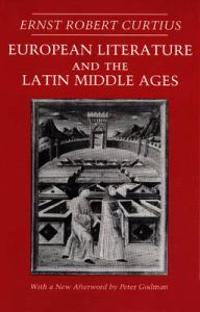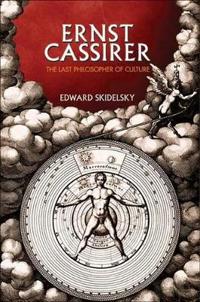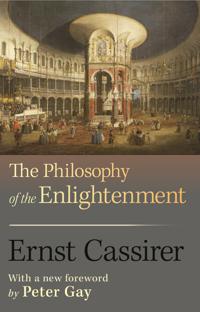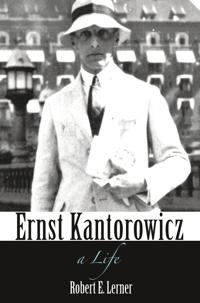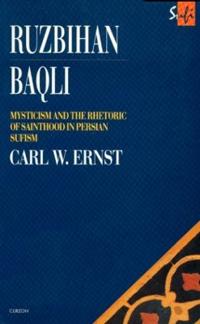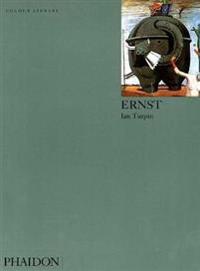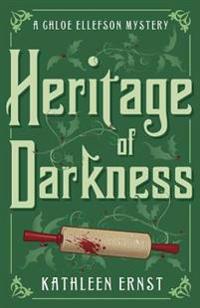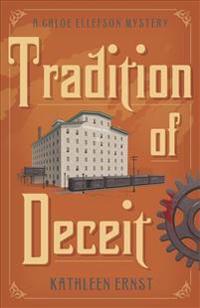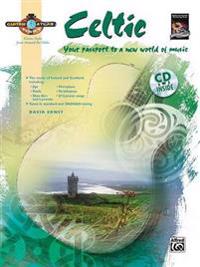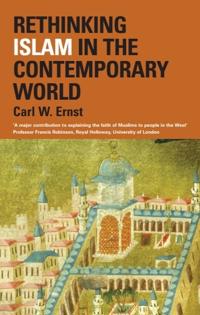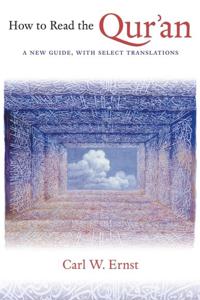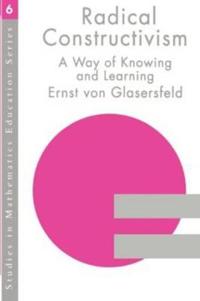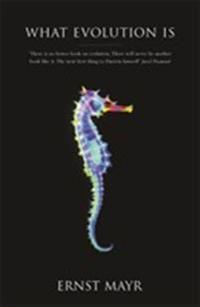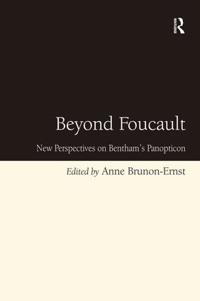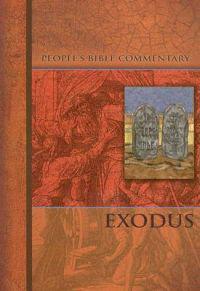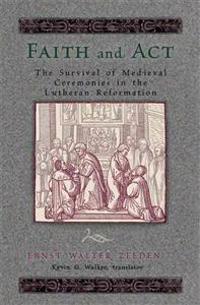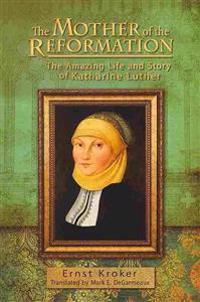European Literature and the Latin Middle Ages (Häftad)
avErnst Robert Curtius
ISBN: 9780691018997 - UTGIVEN: 199102In this "magnificent book" (T. S. Eliot), Ernst Robert Curtius (1886-1956), one of the foremost literary scholars of this century, examines the continuity of European literature from Homer to Goethe, with particular emphasis on the Latin Middle Ages. In an extensive new epilogue, drawing on hitherto[...]
Islam in South Asia in Practice (Pocket)
avC. Ernst
ISBN: 9780691044200 - UTGIVEN: 2009-09-08This volume of "Princeton Readings in Religions" brings together the work of more than thirty scholars of Islam and Muslim societies in South Asia to create a rich anthology of primary texts that contributes to a new appreciation of the lived religious and cultural experiences of the world's largest[...]
Ernst Cassirer (Inbunden)
avEdward Skidelsky
ISBN: 9780691131344 - UTGIVEN: 200810This is the first English-language intellectual biography of the German-Jewish philosopher Ernst Cassirer (1874-1945), a leading figure on the Weimar intellectual scene and one of the last and finest representatives of the liberal-idealist tradition. Edward Skidelsky traces the development of Cassir[...]
The Philosophy of the Enlightenment (Häftad)
avErnst Cassirer
ISBN: 9780691143347 - UTGIVEN: 200908In this classic work of intellectual history, Ernst Cassirer provides both a cogent synthesis and a penetrating analysis of one of history's greatest intellectual epochs: the Enlightenment. Arguing that there was a common foundation beneath the diverse strands of thought of this period, he shows how[...]
Ernst Cassirer (Pocket)
avEdward Skidelsky
ISBN: 9780691152356 - UTGIVEN: 2011-11-01A biography of the German-Jewish philosopher Ernst Cassirer (1874-1945), a leading figure on the Weimar intellectual scene and one of the last and finest representatives of the liberal-idealist tradition. It traces the development of Cassirer's thought in its historical and intellectual setting.[...]
European Literature And The Latin Middle Ages (Pocket)
avErnst Robert Curtius
ISBN: 9780691157009 - UTGIVEN: 2013-06-01European Literature and the Latin Middle Ages is a monumental work of literary scholarship. In a new introduction, Colin Burrow provides critical insights into Curtius's life and ideas and highlights the distinctive importance of this wonderful book. Published just after the Second World War, Europe[...]
Ernst Kantorowicz
ISBN: 9780691172828 - UTGIVEN: 2017-01This is the first complete biography of Ernst Kantorowicz (1895-1963), an influential and controversial German-American intellectual whose colorful and dramatic life intersected with many of the great events and thinkers of his time. A medieval historian whose ideas exerted an influence far beyond h[...]
Ernst Kantorowicz (häftad)
ISBN: 9780691183022 - UTGIVEN: 2018-09This is the first complete biography of Ernst Kantorowicz (1895-1963), an influential German-American medieval historian whose colorful life intersected with many of the great events and thinkers of his time. Born into a wealthy Prussian-Jewish family, he fought in World War I--earning an Iron Cross[...]
Ruzbihan Bagli (Häftad)
avCarl W. Ernst
ISBN: 9780700703425 - UTGIVEN: 199602"Ruzbihan Baqli" is a full-length study devoted to the life and mystical experiences of one of the outstanding figures in Persian Sufism. Although Ruzbihan Baqli (d.1209) was long recognized within the Sufi tradition, it is only within the past few decades that his works have been rediscovered and p[...]
Ernst (Häftad)
avIan Turpin
ISBN: 9780714828664 - UTGIVEN: 1993-08Probably the most complex artist within the Dada and Surrealist movements, Max Ernst (1891-1976) was certainly one of the most important modern European artists. He created techniques that went, in his own words, 'beyond painting', reflecting his emphasis on art as a process of enquiry. His collages[...]
The Heirloom Murders (Häftad)
avKathleen Ernst
ISBN: 9780738727585 - UTGIVEN: 201109Working for Old World Wisconsin, Chloe Ellefson delights in losing herself in antiques and folk traditions - and forgetting her messy love life. But the ethnic outdoor museum becomes a murder scene when an Old World volunteer is killed with a scythe. Does the missing Eagle diamond, a legendary gemst[...]
Heritage of Darkness (Häftad)
avKathleen Ernst
ISBN: 9780738736983 - UTGIVEN: 2013-10Dark Secrets Hidden in Norwegian Traditions For curator Chloe Ellefson, a family bonding trip to Decorah, Iowa, for rosemaling classes seems like a great idea--until the drive begins. Chloe's cop friend Roelke takes her mother's talk of romantic customs good-naturedly, but it inflates Chloe's emotio[...]
Tradition of Deceit (Häftad)
avKathleen Ernst
ISBN: 9780738740782 - UTGIVEN: 2014-11Book 5 in the award-winning historical Chloe Ellefson Mystery series Curator and occasional sleuth Chloe Ellefson is off to Minneapolis to help her friend Ariel with a monumental task. Ariel must write a proposal for a controversial and expensive restoration project: convert an abandoned flour mill,[...]
Guitar Atlas Celtic: Your Passport to a New World of Music, Book & CD
avDavid Ernst
ISBN: 9780739035986 - UTGIVEN: 200412Iraq and Gertrude Bell's the "Arab of Mesopotamia" (Häftad)
avKathleen Ernst
ISBN: 9780739125625 - UTGIVEN: 200802Gertrude Bell was one of a select group of Western Arabists who helped create the modern Middle East. She was arguably the single most influential individual in Iraq when the British attempted in the aftermath of World War I to create a nation out of regions that had long been different provinces of[...]
Reg 2014 Four Seasons Wall: Four Seasons (Övrigt)
avKathleen Ernst
ISBN: 9780741244659 - UTGIVEN: 201307Rethinking Islam in the Contemporary World (Häftad)
avCarl W. Ernst
ISBN: 9780748619597 - UTGIVEN: 2004-02Recipient of the 2004 Bashrahil Prize for Outstanding Cultural Achievement in the Humanities An introduction to Islam, today the faith of more than a billion people, set in the context of world history and of religious studies. Carl Ernst brings together Islamic religious thought and lived experienc[...]
How to Read the Qur'an (Häftad)
avCarl W. Ernst
ISBN: 9780748650705 - UTGIVEN: 201202'Outstanding, timely and much needed.' Amir Hussain, Professor of Theological Studies, Loyola Marymount University 'A very well-written, remarkably accessible, timely and important book. It is sure to be read widely.' Muhammad Qasim Zaman, Robert H. Niehaus '77 Professor of Near Eastern Studies and [...]
Radical Constructivism (Häftad)
avErnst von Glasersfeld
ISBN: 9780750705721 - UTGIVEN: 199605Radical constructivism is a theory of knowing that provides a pragmatic approach to questions about reality, truth, language and human understanding. It introduces a change to many basic ideas, and consequently has a profound influence on the general attitude towards the world we experience. By gene[...]
What Evolution Is (Storpocket)
avErnst Mayr
ISBN: 9780753813683 - UTGIVEN: 200212Evolution is the most important idea in biology, with implications that go far beyond science. But despite more than a century's progress in understanding, there is still widespread confusion about what evolution is, how it works and why it is the only plausible mechanism that can account for the re[...]
Beyond Foucault (Inbunden)
avAnne Brunon-Ernst
ISBN: 9780754668435 - UTGIVEN: 201203In his hugely influential book "Discipline and Punish", Foucault used the example of Jeremy Bentham's Panopticon prison as a means of representing the transition from the early modern monarchy to the late modern capitalist state. In the former, power is visibly exerted, for instance by the destructi[...]
Faith & ACT: The Survival of Medieval Ceremonies in the Lutheran Reformation (Häftad)
avErnst Walter Zeeden
ISBN: 9780758627018 - UTGIVEN: 201206The Mother of the Reformation: The Amazing Life and Story of Katharine Luther (Häftad)
avErnst Kroker
ISBN: 9780758635266 - UTGIVEN: 2013-06

